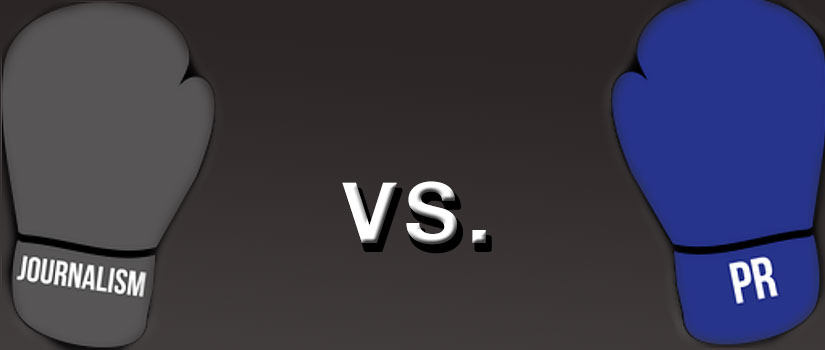Posted December 20, 2016
By Dr. Shannon Bowen, professor in the public relations sequence
Reprinted with permission from PRWeek
For years, numerous scholars and I have written about the disdain journalists hold for PR pros. The contempt among journalists for PR takes many forms, from scorn and derision to evasion and outright misrepresentation of PR by equating it with lies or manipulation. How many times have you heard a journalist use a phrase such as, "If that is fact or just PR remains to be seen." I bet the times you have seen, heard, or read something similar are numerous.
In a recent study, I cataloged the reasons research has found for the antipathy between PR and journos: mistrust, salary discrepancies, blocking access to "the real story," or using PR as a distraction or insincere "window dressing." These conceptions arise to form what D.K. Wright termed "professional prejudice" of journalists against PR pros. But perhaps the most telling factor is that numerous studies reveal that journalists do not consider PR "a profession equal to journalism in ethics." Overwhelmingly, the adverse relationship is not simply one of situation but, more importantly, one of ethics.
Understanding the reason for the slurs of PR offers insight into a new source of pride for our field. As an ethics professor, I teach mass media and journalism ethics, as well as PR ethics (though rarely in the same course). The source of journalism’s self-appointed moral superiority is two-fold:
- Journalistic objectivity, professional distance, and balanced reporting allows the journalist to seek and report the truth. Truth prevails above all other reason, rationale, and justification against publication because the public’s right to know is well founded and upheld in numerous court rulings.
- Journalists serve an important role in civil society by acting as a watchdog of government,
reporting corruption and wrong doing for the benefit of all citizens, and offering
those citizens the ability to act as an informed and free electorate. This moral responsibility
is commonly referred to as the Fourth Estate – an unofficial yet powerful political
and social watchdog role.
Until late 2016.
KABOOM! Thanks, Donna Brazile. From her scandal that involved providing advance questions to the Clinton campaign for the Presidential town hall to the gross neglect of disparate information on the Presidential race, the media has created a shamble of ethical scandals. From numerous fake news stories gaining traction to the New York Times offering editorial authority and veto power to the Clinton camp, the Fourth Estate has crumbled. There may still be some objective and independent investigative journalists out there, somewhere, but they are as hard to find as a four-leaf clover amid the morass of opinion-giver-once-journalists. If some ethical objectivity had been maintained, we might have had more perspective rather than the "We had no idea where the people were" explanation of Fox Business host/debate moderator Maria Bartiromo. The watchdogs became lap dogs.
Where is the outrage among journalists for the betraying of their sacred trust? What about Society of Professional Journalists (SPJ) condemnation of these unethical activities? Where are the sanctions for violating the SPJ Code of Ethics? At least media ethicist Stephen J. Ward recently penned a wonderful plea for a return to pragmatically objective journalism.
What does this ethical morass in media mean for PR pros? A great deal. We are called on to act as the ethical guardians of our organizations (or clients), offering perspective and counsel on not only the "can do" but also the "should do." That role increases in importance when there is scant objective media to maintain a system of checks and balances.
While journalism reorganizes itself, the role of PR has heightened. We have a seat in management in most organizations, and can now prove our worth by offering wise ethical and reputational counsel to the CEO. We have opportunities to explain why the truth is important — even when it is unsavory — to our organizations, clients, and to the people they represent. Counseling against biased, wishful, or untruthful communication should be in the repertoire of the PR pro and a daily activity in most companies.
PR offers a valuable ethical role in society — we facilitate the resolution of conflicts, offer information to stakeholders in need of it, allow organizations and society to understand one another, and create an authentic core of ethical conscience in which we can represent external interests in management. Those values are ethical, offering inclusion, respect, an analytical approach, and a consistently ethical and professional way to move forward in our roles as PR pros. Although there are many things to consider, reasoned truth and honest communication should always drive our analyses.
No longer are PR pros hacks and flacks, but rather ethical counselors, problem-solvers, and communication facilitators. Seems journalists now have the ethical problem that they once used to scoff and deride PR. Good PR is honest; it is vindicated and stands as a proud and valuable profession.
